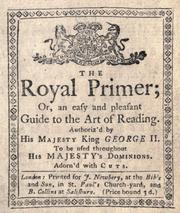So this week's topic is the plant called chamomile. Or is it camomile? And if the former, what the heck is that silent h doing in there? You will notice there is no h in the French version.
Like so many names for herbs and other foodstuffs, this is a word we borrowed from French after the Norman Conquest. Old French camomille came from late Latin chamomilla, which came from Greek khamaimēlon (literally "earth apple" from khamai earth + mēlon apple, because of its low-growing habit and the apple-like smell of its flowers). Old French did not believe in inserting unpronounced letters just because they happened to be in the Latin word.
So, in English too, from the 1200s to the 1500s, "camomile" was spelled as it was pronounced. But, as we have seen before, starting in the 1500s English had a mania for inserting silent letters in words to represent Latin etymology. "Camomile", like "debt" and "receipt" and so many other words, was influenced by this trend, but did not completely succumb to it.
Or not yet. Traditionally, dictionaries will tell you, the United States prefers "chamomile" while everyone else prefers "camomile". However, a survey I did this week of an international group of editors revealed that a whopping 191 opted for "chamomile" versus only 23 for "camomile". This trend crossed geographical boundaries, and is supported by various corpus searches, which show "camomile" beating a retreat. And this, despite the fact that non-American dictionaries list "camomile" first. Shows you how little influence dictionaries have when the users of the language get the bit in their teeth.
But WHY, when we had the choice between an easier-to-spell, more intuitive variant and a harder-to-spell, less intuitive one, did we have to opt for the latter? I can only conclude that we English speakers really are masochistic when it comes to spelling.
Another question about this word is: How is it pronounced? Does the last syllable sound like "mile" or like "meal"?
Here we have a quite stark North America / Rest of the World divide. My survey revealed the following:
US: Overwhelmingly "meal"
UK, Ireland, Australia: Overwhelmingly, almost exclusively "mile"
This meant, of course, that Canadians had to do their usual thing and be split more or less down the middle, with a slight preference for "mile".
Interestingly, a couple of Texans and a smattering of others had a pronunciation not listed in dictionaries: "mill".
This pronunciation difference may be a result of the Great Vowel Shift. Before the 1500s, "camomile" (and "mile") were pronounced like modern "meal". Then the shift happened, but perhaps it didn't affect "camomile" as quickly as it affected "mile" and so the earlier version came over to North America. I used to think "camomeel" was an affectation but I should stop being so judgemental.
For just a few of our many other silent letters in English, please see this post:
http://katherinebarber.blogspot.ca/2014/11/silent-letters-in-english-series.html



